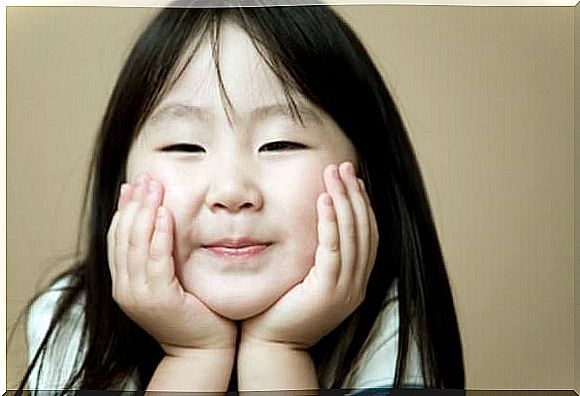Why Do Japanese Children Obey And Not Throw Tantrums?

The character of the Japanese and Japanese children is much admired in various places in the world. We have seen how they confront enormous tragedies with great stoicism. They never lose control and maintain a collective feeling in all circumstances. They also stand out for their enormous respect for others and their great perseverance.
Not only Japanese adults are like this. Japanese children are also very different from what we are used to in the West. From a very young age, their gentle manners and joviality are unquestionable. For example, Japanese children will not provoke tantrums and they will remain in control in all circumstances.
How did the Japanese manage to create a society?
The Japanese value the family very much
What is curious about the Japanese is the relationship between different generations. More than in other parts of the world, the bond between the elderly and young is empathetic and tender. To them, an older person is full of wisdom, deserving of the highest attention.
In turn, older people see children and young people as adults in training. Therefore, they are tolerant and loving towards them. They assume leadership roles but are not judges or police officers in their lives. That is why the bonds between young and old are often very harmonious.
The Japanese greatly value an extended family but at the same time they have clearly defined boundaries. For them, for example, it is inconceivable that the grandparents take care of their grandchild because the parents do not have time. The relationships are not based on an exchange of favours, but on a worldview in which everyone has their own place.
The education of Japanese children is based on sensitivity
The majority of Japanese families view parenting as an affective act. Yelling or blaming are things that are looked down upon. Parents expect their children to interact with the world in a meaningful way and to respect the sensitivity of others.
In general, parents will reprimand their children with a look or gesture of displeasure when they do something wrong. In this way, they make them realize that their behavior is not acceptable. It is common to use phrases such as “You hurt him” or “You hurt yourself” to emphasize that their behavior is negative because it causes harm.
This approach even applies to objects. For example, if a child breaks a toy, it is likely that his parents will say “You hurt it”. They don’t say “you broke it”. Japanese emphasize the value of things and not their functionality. Because these children learn from an early age to be aware of everything and that is what makes them more respectful.
The big secret: quality time
All of the above aspects are important. But no aspect is more important than the fact that Japanese prefer to spend quality time with their children. They don’t view parenting as something you do from a distance, but quite the opposite. It is very important for them to maintain close ties with your children.
It is unusual for a mother to send her child to school before the age of three. The custom is that mothers take their children everywhere with them. This physical contact, which is also common in more traditional communities, also generates a deeper bond. The contact with the skin is also a contact with the soul. For the Japanese mother, it is very important to talk to her little ones.
The same goes for the fathers and grandparents. It is common for families to get together to talk. Eating as a family and telling stories is one of the most common activities. Family stories are told again and again. This generates a sense of identity and involvement that is transferred to the children. So is a deep appreciation for the language and the company.
That is why Japanese children almost never throw tantrums. They are surrounded by an environment that does not generate any big surprises. They do not feel abandoned emotionally. They see the world as a structure in which everyone has their place. This gives them peace of mind, sensitizes them and helps them to understand that sudden outbursts are unnecessary.









